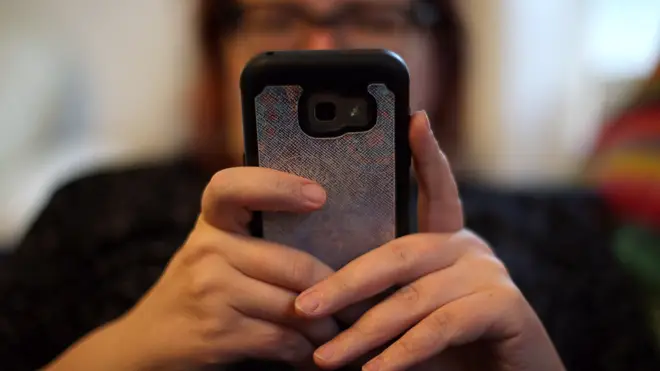
Tom Swarbrick 4pm - 7pm
20 March 2024, 09:34

New research from the Alan Turing Institute found that a majority of women feared they would be targeted by harmful online behaviour if they did.
Three quarters of women do not feel comfortable expressing political opinions online over fears they will be targeted with threats and harassment, according to new research from the Alan Turing Institute.
The survey of 2,000 UK adults found that the majority of women fear being targeted by misogyny, trolling and other harmful online behaviour, and women were almost twice as likely than men to say they had been negatively affected by an online experience.
According to the study, men and women reported seeing harmful content online equally overall, but women reported being directly targeted by abusive content to a significantly greater extent.
Women were also significantly more fearful of experiencing every type of harm they were asked about in the study.
The Alan Turing Institute warned that with much public discourse now happening online, gender inequality in public voice could become more prevalent if women are too fearful to participate.
Dr Florence Enock, senior research associate at the Alan Turing Institute and co-lead on the research paper, said: “Taking steps to ensure that all members of society feel safe and able to participate in the online space is essential for an equal society.
“This is more important than ever as over half the world is due to vote in 2024 and much discourse around this will be expressed online.
“In order for women to fully engage politically they must feel safe doing so in both offline and online spaces.”
The research has been published during AIUK, a showcase of data science and AI being hosted by the institute.
Its head of online safety, Dr Jonathan Bright, said: “This research is crucial first step in determining the psychological burden that different genders suffer in response to harmful online content.
“This work provides valuable information about who is most at risk, where support should be directed, and what interventions are needed to ensure all members of society feel safe.”